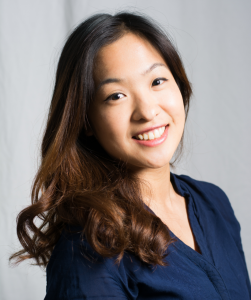2SLGBTQ+ Competent Trauma-Informed Care Workshop Moves Online
December 1/2020
by Françoise Makanda, Communications Officer at DLSPH
Members of the 2SLGBTQ+ community often don’t receive trauma-informed and competent care. DLSPH researchers are helping to address that gap with online workshops.
Care providers sometimes receive training in one of these areas, but very rarely both together. Research shows that even if programs are trauma-informed, they lacked cultural competency.
“There are unique forms of trauma that members of the 2SLGBTQ+ community experience, as well as unique challenges in accessing care,” says Michelle Tam, a PhD student in Social and Behavioural Health Sciences, who leads the workshop implementation. “That’s why this specific workshop is needed.”
In a culturally competent environment, service administrators – whether a nurse, doctor or police officer – understand the high level of biases the community experiences and how it impedes their ability to receive care. Providers offer care with respect, humility and curiosity.
Trauma-informed care is an approach that shifts the lens from “what is wrong with you” to “what has happened to you,” fostering understanding of the effects of trauma can have on a person like experiences in discriminatory healthcare.
“Through our workshops, we also want service providers to be able to engage in meaningful accountability and repair,” says Tam. “Acknowledging that harm can be experienced from and by service providers. There are accountability and repair techniques that we teach in the workshop because as service providers we’re not perfect.”
A 12-person advisory committee of service providers with consultation from an Indigenous elder supported the project. The six-module program was initially intended to be taught in one day in cities like Ottawa, Windsor, Toronto, Thunder Bay, London, Timmins, Sudbury and Kingston. The delivery was switched to a two-half day session in an online format following the lockdown. Workshop activities like breakout rooms had to be rejigged.
“Our workshop reached about 300 service providers across Ontario and 116 unique organizations, services and institutions.”
Although Tam does not yet have post-event survey results, informal feedback suggests that the program is needed and should be disseminated widely in healthcare and other social service settings.
“The workshop’s goal is not to have participants know and understand everything. They need to be open to learning – being curious is ok. They need to be comfortable with learning and unlearning. It’s an important point we drive home,” says Tam.
While project leads understand that the workshops will not be able to completely erase the health gap the community experiences, they say service providers who took the workshop now have the tools to recognize discrimination, reflect on biases and acknowledge the gaps in their knowledge.
The workshop is part of a two-year project funded by the Public Health Agency of Canada. Professor Lori Ross is Michelle Tam’s supervisor.
